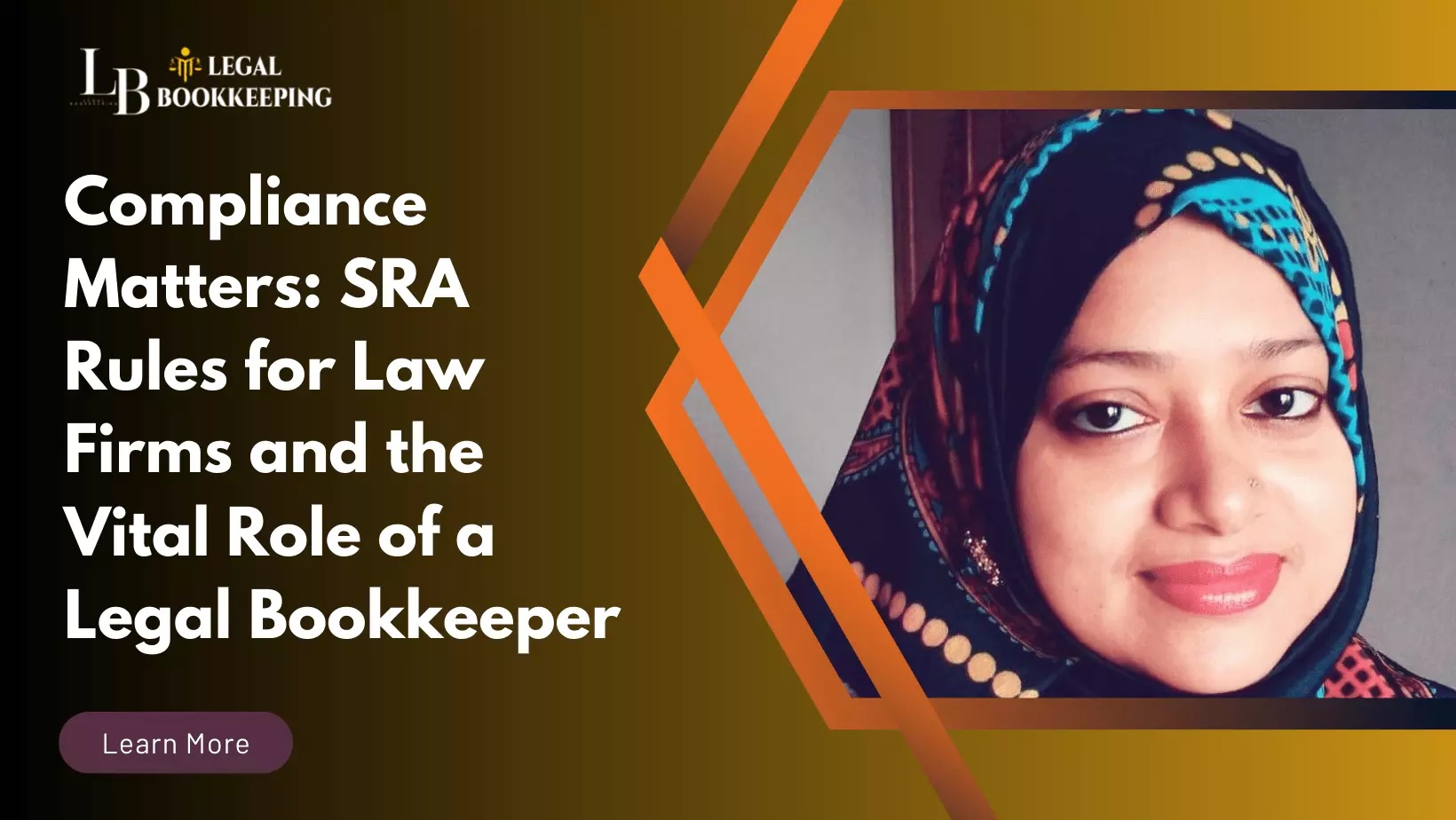
SRA Rules for Law Firms and Role for Legal Bookkeeper
Legal bookkeeping differs from general bookkeeping because of the rules set by the Solicitors Regulation Authority (SRA). Any legal firm, if registered under SRA, must follow professional standards to avoid penalties and obey the SRA Rules for Law Firms. The SRA sets the regulations to safeguard clients’ funds kept deposited with a law firm. These also aim at ensuring high-quality service from the firms.
This article will briefly deal with the SRA rules and how they safeguard clients’ money.
Opening a Trust Account to keep clients’ money
Usually, a solicitor takes money from his clients in advance for the case proceedings. The money thus taken is deposited into the Trust Account. When the case is successfully closed, the lawyer gets the money. Under no circumstances can a solicitor not withhold a client’s money.
Keeping separate Client’s Money
SRA’s strict rule is to keep clients’ money separate from the legal firm’s money. However, a few mischievous attorneys use the clients’ money to clear the firm’s bills. However, there should be a written notification or bill of cost to transfer the funds to the office account.
Following the Double Entry Principle
The law firm has to maintain chronological records of how the money is spent on each task. An experienced bookkeeper will follow the Double Entry Principle to keep the count of each transaction.

Making Client Books Exhaustive
Client books should be comprehensible. It should not only contain the date of the transaction but also provide adequate information about the transaction. For example, it may include the name of the client and a short description. Again, a legal bookkeeper has to update each client’s book frequently. Missing records may result in miscalculation.
Reviewing Client Books
It is highly recommended to reconcile each client’s account every five weeks. Reviewing the client’s accounts keeps the client well-informed. A legal bookkeeper can easily avoid missing a deadline by reviewing the client’s books daily with the help of technology.
Generating Reports
A firm must generate a report from an accountant within six months from the end of the accounting period in compliance with SRA. The accountant must develop the report accurately based on all the records. The report will be stored for around six years.
Understanding Withdrawal Process
The withdrawal process of clients is very strict. A client’s account cannot show a negative balance status. Money can be withdrawn for any purpose related to the case in question. The authorized person should have adequate knowledge about the regulations while withdrawing money. SRA has developed these guidelines to ensure that the client’s money is handled correctly. The SRA Rules for Law Firms emphasized doing legal bookkeeping accurately. There should not be any room for the legal bookkeepers to commit mistakes


